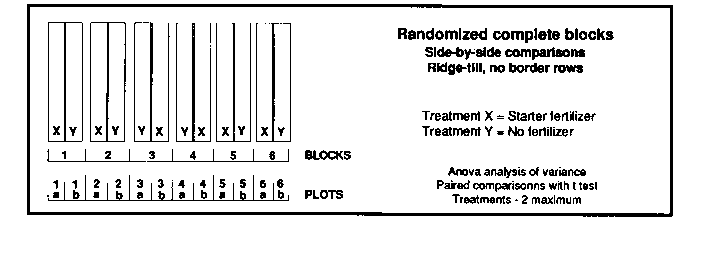
Sustainable Farming Index | Virtual Library | Magazine Rack
Search
| Ecological Solutions Roundtable
by Jacques Nault
Discussions about sustainable agriculture usually focus on alternative, environmentally benign agricultural practices. Equally as important, however, is the process by which these practices are generated and what their use implies in terms of awareness and knowledge. It will be argued here that the current model of technology development and transfer (TD&T) cannot generate a sustainable agriculture; an alternative participatory approach, as suggested later on, is needed.
In the current TD&T model, knowledge and innovations move from a central research station to diffuse, disparate and heterogeneous receiving stations - the farms of the rural communities.
The relative homogeneity of the central station compared to the diversity of the settings, resources and skills found in the farming community, makes on-station developed technologies immediately relevant to, at best, a handful of farmers whose farm structure resembles that of the research station. This is particularly true for sustainable, agricultural practices because they are based on biological processes (nutrient, water and organic matter cycling and recycling, balanced insect populations etc.) which vary from one micro-environment to another and therefore must be nearly tailor-made at each site. This site-specificity demands a decentralized approach to technological development and is incompatible with the current model.
The realization that sustainable agriculture requires site-specific management practices has led many groups (among others, The Practical Farmers of Iowa", REAP-Canada, Rodale Research Institute, Land Stewardship Project in Minnesota, etc.) to move their research on-farm. The dialogue between these scientists and co-operating farmers that was necessary to do on farm research has resulted in improved understanding, generated commitment and motivation, stimulated enormous innovations, and yielded technologies that are immediately adoptable by farmers.
The mixture of scientific methods and farmer know-how has produced an explosion of new knowledge and shown the degree to which farmers are capable and eager to participate in the development of their farms in particular, and of agriculture in general. This cooperation, known as "participatory on farm research", originated in the Third World as an alternative development strategy after the conventional transfer approach had failed.
So far the effort has largely been to adapt scientific methods to produce statistically valid data using on-farm trials, experimental design and machinery. A good example of this is the side by side strip design made popular by the Rodale Institute.
The real potential of this approach, however, is that all participants become involved in the learning process, stimulated by discussions, readings and trials; this leads to higher technical and ecological knowledge and self awareness. Such empowerment encourages responsible agricultural and social actions required for the sustainability of the food system. The challenge of sustainable agriculture is for everyone to acquire this ability to reflect and act consistently, in every unique situation, in an ecological and ethical way. The focus of participatory research, therefore, should be to stimulate and enhance the learning process of all the "co-researchers" involved if this challenge is to be met.

Jacques Nault is currently completing his M.Sc. thesis in rural extension studies at the Macdonald Campus of McGill University.
Copyright © 1991 REAP Canada
Reprinted with permission. All rights reserved.
Info Request | Services | Become EAP Member | Site Map
Give us your comments about the EAP site
Ecological Agriculture Projects, McGill University (Macdonald
Campus),
Ste-Anne-de-Bellevue, QC, H9X 3V9 Canada
Telephone:
(514)-398-7771
Fax:
(514)-398-7621
Email: info@eap.mcgill.ca
To report problems or otherwise comment on the structure of this site, send mail to the Webmaster